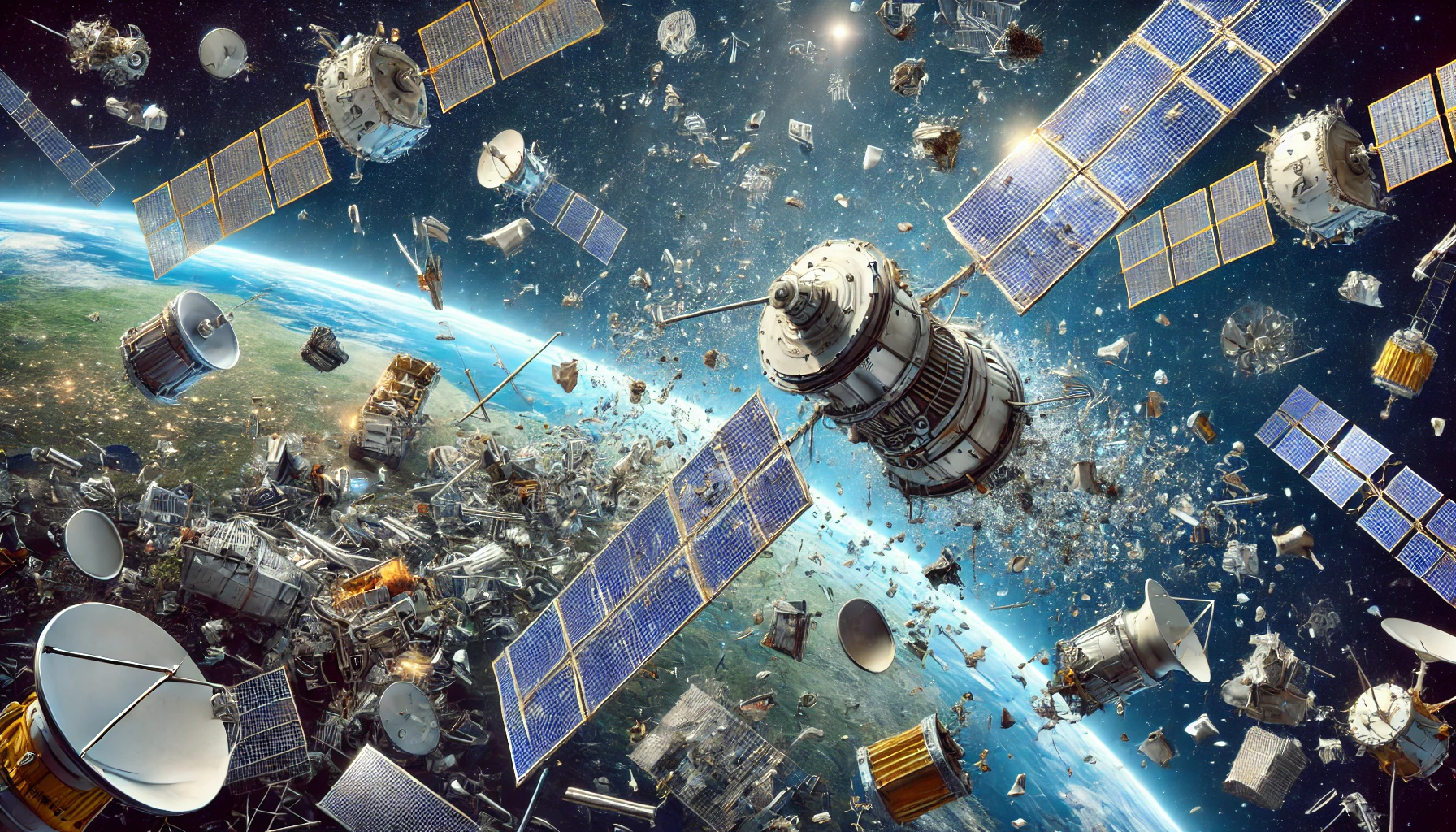Space Junk Crisis: Can Advanced Satellite Technology Save Our Orbits From Becoming a Cosmic Landfill?

The Space Junkyard: A Mess 60 Years in the Making
Picture this: you're out camping, enjoying the night sky, when suddenly, instead of serene twinkling stars, you notice a trail of what seems like... trash? Welcome to the world of space debris. For over 60 years, humans have been launching satellites, rockets, and various spacecraft into the great beyond, but they forgot one little detail: cleaning up after themselves. Now, there are about 23,000 pieces of debris larger than a softball whizzing around Earth. Even scarier? There are millions of smaller bits of junk up there too, and they travel fast—like, 17,500 miles per hour fast. Ouch!
Why Is Space Junk Such a Big Deal?
We might not be too bothered about a piece of metal orbiting thousands of miles above us, but space junk is no joke. Each piece of debris is like a tiny, high-speed bullet. These can damage—or even destroy—satellites, spacecraft, and space stations. Imagine a rogue screw smashing into the International Space Station. Yeah, not a good day at the office for astronauts. The stakes are even higher for future missions, including Mars explorations, the lunar base projects, and commercial space travel. In fact, it's estimated that the problem is only getting worse, and at some point, we might be locked out of orbit altogether because of a cluttered 'debris cloud'.
The Potential Solutions: Enter the Space Sweepers
So, what are we doing to prevent space from turning into a cosmic junkyard? Well, scientists and engineers worldwide are working on some pretty wild ideas. For example, the European Space Agency is developing 'RemoveDEBRIS', a satellite designed to capture junk with a net. Yes, you read that right: they're planning to fish for space debris. Then, there's the 'tugboat' approach, which involves a satellite grabbing the trash and dragging it back toward Earth's atmosphere to burn up. A Japanese company is even working on a space debris removal system using magnets. Space-age solutions, indeed!
Satellite Tech to the Rescue: How Advanced Systems Are Tackling the Problem
It's not just sweeper systems that are in the works; the latest advancements in satellite technology are also playing a role in reducing space debris. New satellites are now being designed with 'self-destruct' features that allow them to burn up in the atmosphere once they've outlived their usefulness. Another cool innovation is the concept of 'deorbit kits,' small devices that attach to satellites and help them safely fall back to Earth when their mission is complete. Some companies are also exploring ways to recycle space debris—essentially turning the junk into something useful, like fuel or building materials for future space structures. Talk about trash to treasure!
How Bad Is It, Really?
To give you an idea of the scale, think of space debris like a giant traffic jam in orbit. Every time a satellite or piece of debris crashes into something else, it breaks into more fragments. This is called the Kessler Syndrome, and it could eventually lead to a cascading effect, making space missions nearly impossible. Imagine trying to send up a satellite and having to dodge thousands of pieces of debris on the way up. It's like trying to drive through New York City without hitting traffic—only a lot more dangerous!
Are We Too Late to Fix It?
While the situation sounds dire, it’s not entirely hopeless. There’s still time to clean up space—if we act quickly. But that means countries, companies, and space agencies need to come together and agree on some international rules for keeping space clean. New space missions must also prioritize debris reduction. For example, SpaceX has made some headway by designing satellites that can deorbit after their mission. Governments may need to impose more regulations to make sure the space cleanup efforts don't fall behind the growing amount of junk.
What Can We Do on Earth?
Surprisingly, the space junk problem isn't just something for rocket scientists to deal with. People on Earth can help too. How, you ask? By advocating for more responsible space missions, supporting legislation that pushes for international cooperation on space debris, and raising awareness about the issue. The more we know, the more pressure can be put on governments and private companies to take action. Plus, who knows? Maybe your next start-up idea could be the next big solution to the space junk crisis. Just think: Space Trash Inc. Could be a hit!
Final Thoughts: Will Space Stay the Final Frontier or Become the Final Dumpster?
The truth is, space junk is a big problem, but it's also an opportunity for innovation. We’ve got some brilliant minds working on solutions, from satellite sweepers to self-destructing satellites. However, unless these technologies get up and running soon, we could be looking at a future where space travel is too dangerous, or worse, completely impossible. The good news is that people are waking up to the issue, and more companies are thinking about long-term sustainability in space. But the real question is: Will we clean up our cosmic mess before it's too late, or are we doomed to turn the final frontier into a floating landfill?
Now It’s Your Turn: What Do You Think?
Are we doing enough to clean up space, or do you think we’re heading toward an orbital disaster? Share your thoughts below!



